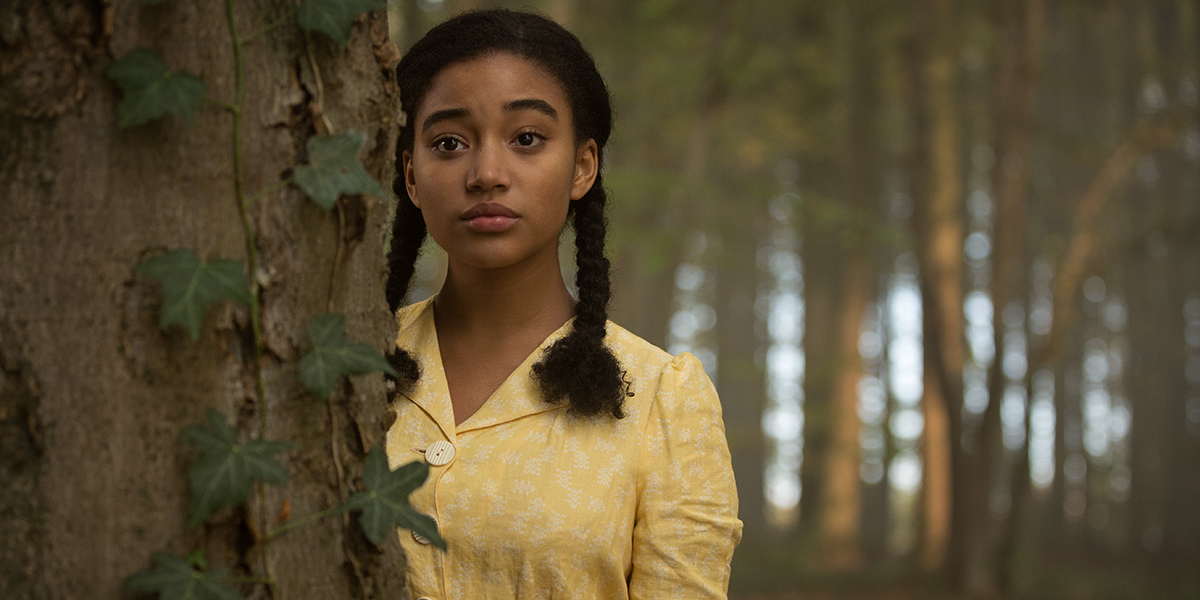Toronto Film Review: ‘Where Hands Touch’
By Scott Tobias
LOS ANGELES (Variety.com) – With her 2013 period drama “Belle,” director Amma Asante deftly handled the social uncertainties of a mixed-race aristocrat in 18th-century England, caught between worlds without firmly belonging to any of them. Asante offers a similar predicament in “Where Hands Touch,” a World War 2 drama about a secret affair between a black German teenager and a member of the Hitler Youth, but her themes of identity and racial persecution are muddled by a star-crossed love that drifts from unlikely to absurdly implausible. Playing the daughter of a Senegalese father and an Aryan mother, Amandla Stenberg carries the magnetism she brought to her breakthrough role in the YA romance “Everything, Everything,” but she’s betrayed by a stilted rendering of a rarely illuminated piece of history.
Of the approximately 25,000 black people living in Germany at the time, several hundred were called “the Rhineland bastards,” the offspring of black colonial troops fighting for the French in World War I and white German women. While the Nazis did not mark them for extermination, they were treated as an inferior race and subjected to relentless persecution. With 1944 Rhineland as a starting point for her story, Asante follows 16-year-old Leyna (Stenberg) as her devoted single mother (Abbie Cornish) whisks her and her white younger brother (Tom Sweet) off to Berlin in search of a better, safer life. Leyna’s uncle secures falsified papers attesting to her sterilization and, after she’s expelled from school because of her race, her mother gets her a factory job.
Yet Leyna can only hold off the danger for so long, and when she catches the attention of Lutz (George MacKay), a Hitler Youth member more by coercion than belief, that danger is amplified. As the Nazis working aggressively to clear Berlin of Jews, they also find Leyna an easy target, but she and Lutz steal away to hidden pockets of the city and the countryside to pursue a friendship that quickly blossoms into young love. The war eventually tears all these characters asunder, but fate has its own hand to deal, a fistful of aces made possible by Assante relentlessly stacking the deck.
“Where Hands Touch” gets a fine performance by Christopher Eggleston as Lutz’s father, a self-hating Nazi officer who secretly keeps a copy of a Billie Holliday record in his office — one sign that the apple doesn’t fall far from the tree. “You wear the mask that will get you through the war,” he tells his son, reinforcing the film’s strongest unifying idea. Everyone is doing what they can to survive: Leyna and her mother embrace a vicious lie about her sterilization, Lutz pretends to support a bigotry and violence that repulses him, and when a Nazi official walks into a room, both vigorously hail Hitler like everyone else. Leyna cannot entirely mask her identity, so while she considers herself German, she isn’t accepted as such, which leaves her to make some agonizing choices to stay alive. Even if she survives, the end of the war doesn’t necessarily mean the end of her problems.
Stenberg and MacKay do their best to sell the life-risking passion between Leyna and Lutz, but they’re overwhelmed by a narrative that gets less believable as the obstacles mount. It’s hard enough for the two to sneak around Berlin without severe consequences for themselves and their families, but once they’re divided and cross paths again, the coincidences and conveniences necessary to keep their stories bound together are simply impossible to accept. It was never going to be easy for Asante to make a coming-of-age romance between a black German and a young Nazi work — the premise, in fact, sparked a minor controversy — but this story goes too far afield.
What isn’t unlikely in “Where Hands Touch” comes across merely as clichéd, from the gallery of suspect German-as-English accents to the underdressed images of Berlin under Nazi rule and an Eastern European concentration camp. Asante may have uncovered a rarely told World War 2 story, but her milieu seems imported from dozens of other WW2 dramas, absent any specific, animating details about the period. A film about an interracial relationship in Nazi Germany shouldn’t make the audience feel like they’ve seen it all before.

